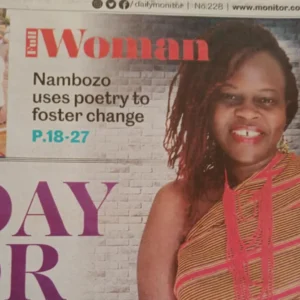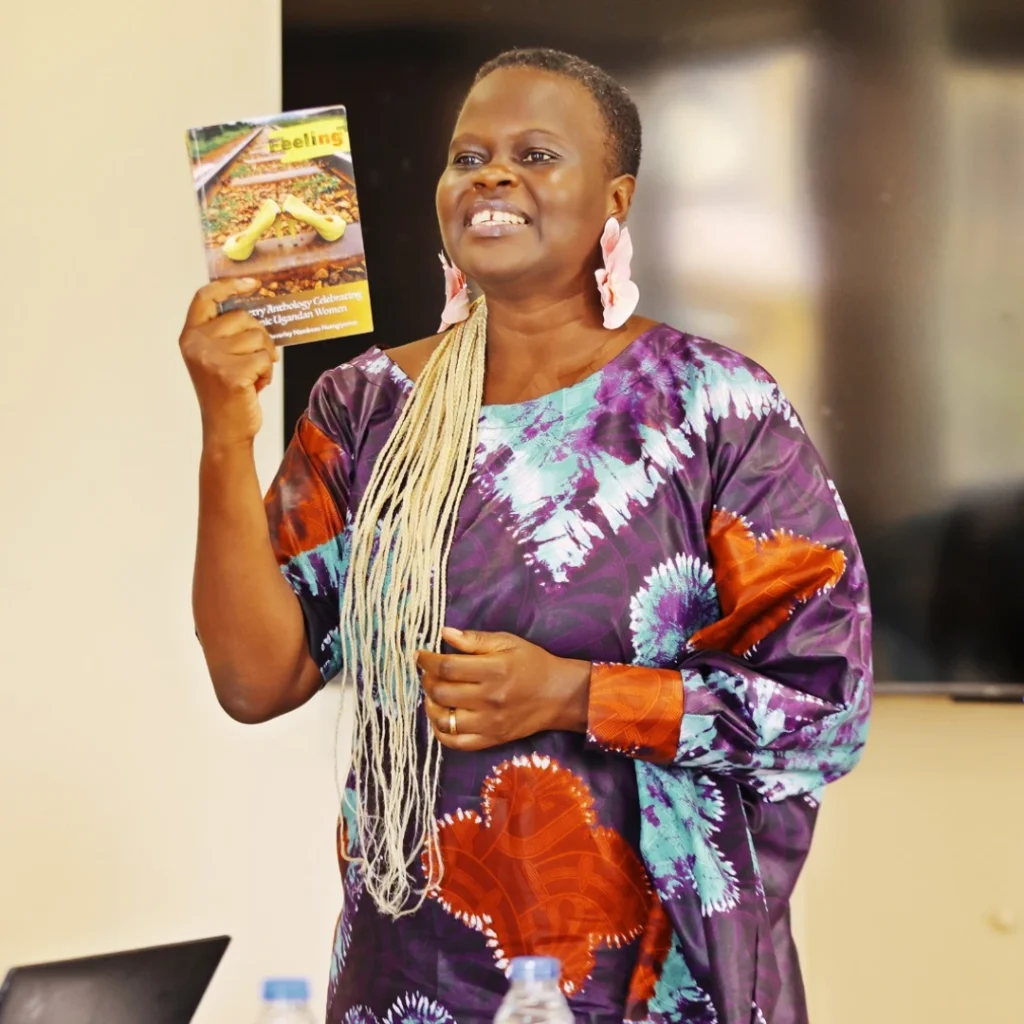
Poetry is a unique and powerful form of communication. You could say, “It’s a nice day today,” or you could say, “Today, the sky smiled at me, and my heart escaped into the sun’s warm embrace.” Both describe the day, but the second lingers in your mind.
I’ve always been captivated by the musicality of words. Music is my happy place, whether it’s rap, love songs from the eighties, or gospel music as I go about my day. I immerse myself in poetry with the same restlessness and passion, following poets and speakers on YouTube. I take risks in both my speech and creativity, just as I did during my time on the radio. From 6:00 AM to 10:00 AM every weekday, I woke up Kampala City. Being a “morning person” suited me, and I’ve carried that energy ever since, waking up between 3:00 and 5:00 AM, beginning each day with prayer and determination.
There are plenty of reasons I could complain—aren’t there always? But the lockdown shifted my mindset into one of abundance. It began with posting videos on my growing YouTube channel (35 subscribers as of August 15, 2020), expanding my clientele for public speaking training, and most importantly, discovering a deeper sense of purpose. Not the fleeting, feel-good purpose, but the kind that roots you in something meaningful, pushing you forward no matter what life throws your way. I didn’t learn this alone; I’m grateful to the advisors, both near and far, whose calls, messages, and emails have been a constant blessing.
Prayer remains a part of my life, though I’ve shifted from constant asking to more receiving of the blessings I’ve prayed for over the years. I still pray and read the Bible, at least three times a week, and find solace in audio-visual sermons.
The lockdown, despite its global devastation, has become my unexpected happy place. I don’t say that to undermine others’ struggles or hardships but to acknowledge the blessings that have shown me God’s presence in my life. The past 44 years have been a journey of highs and lows, but during this time, I’ve had enough of the roller-coaster. Every time one challenge ended, another would arise—often subtle but disruptive. It took the lockdown for me to finally see the warning signs that had been there all along.
Here’s what I’ve realized:
- Always follow my gut—it’s likely the Holy Spirit guiding me. Ignoring it has led to disaster.
- Start my day with God, no matter the deadlines.
- If someone repeatedly disrespects time, they don’t value my work.
- If someone talks only about themselves without acknowledging my story, they’re not interested in me.
- If someone shares my ideas without credit, it reflects a lack of originality and integrity.
- If someone constantly complains about others, they’ll do the same about me.
- If someone uses friendship as a way to avoid paying for my services, that “sisterhood” is hollow.
- If someone uses Christianity to justify misogyny or abuse, I must flee and warn others.
And perhaps most importantly: never chase people or put them on a pedestal. People who see you in awe often lose respect for you; challenge them instead.
The lockdown has given me the time and space for deep introspection, something I never shy away from. I’ve filled diaries with thoughts and lessons learned in these quiet moments.
The feature in The Full Monitor on August 15, 2020, is part of this unfolding journey and a promise from God. I spent hours in conversation with Him—perhaps doing most of the talking—but He knows what I need, and I know it’s time for change. I’m embracing the process.

